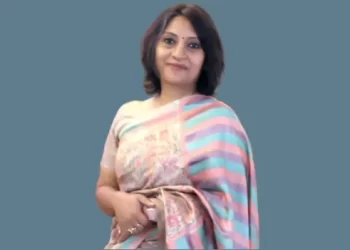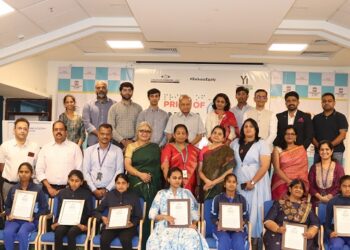NEW DELHI: Independent India is likely to get its first woman Chief Justice when it turns 80 in 2027. The Collegium, headed by CJI N V Ramana, has taken a historic decision to recommend three women, among nine, for appointment as judges of the apex court, and one of them, Justice B V Nagarathna, could go on to head the judiciary in February 2027.
If Justice Nagarathna indeed gets to head the apex court, it will be the second instance of two generations of a family heading the judiciary after the famous Chandrachuds.
Justice D Y Chandrachud is scheduled to be the CJI in November 2022 and will have tenure for two years and two days. His father Y V Chandrachud, the 16th CJI, holds the unbreachable record of heading the judiciary for more than seven years from February 1978 till July 1985.
In comparison, Justice Nagarathna, a judge in Karnataka HC, could become CJI in September 2027 after Justice Vikram Nath and may hold office till October 2027, a tenure of little over one month.
Her father, Justice E S Venkataramiah, was the 19th CJI and had a tenure, which was two days less than six months from June 19, 1989, till December 17, 1989. Before this, only Justice Ruma Pal had come close to becoming CJI. Justice Pal had retired in 2006 as the number 2 judge in the SC.
In a late Tuesday evening meeting, the SC Collegium comprising the CJI, and Justices U U Lalit, A M Khanwilkar, D Y Chandrachud, and L N Rao selected Justices Hima Kohli (CJ of Telangana HC), Mrs. Justice B V Nagarathna (Karnataka HC), Bela M Trivedi (Gujarat HC), A S Oka (Karnataka CJ), Vikram Nath (Gujarat HC CJ), J K Maheshwari (Sikkim HC CJ), C T Ravikumar (Kerala HC), M M Sundaresh (Madras HC) and the only one from the bar – former additional solicitor general P S Narasimha.
On Wednesday, the Collegium recommended their names to the Centre for their appointment as judges of the SC after completing the formalities associated with the opaque ‘judges selecting judges’ process. If the government accepts the recommendations and appoints all the recommended names, the SC would have a working strength of 33 judges against a sanctioned strength of 34. The lone vacancy was caused by the retirement of Justice Navin Sinha on Wednesday.
The SC would also have four women judges, including sitting SC judge Indira Banerjee, who was the eighth woman judge to be appointed to the SC after Justices Fathima Beevi, Sujata Manohar, Ruma Pal, Gyan Sudha Mishra, Ranjana Desai, R Banumathi and Indu Malhotra. The nine choices finalised for appointment as SC Judges do not include the two names stoutly insisted upon by Justice R F Nariman, who retired last week and had virtually stalled selection of Judges for nearly two years.
Born on October 30, 1962, Justice B Venkataramiah Nagarathna had enrolled as an advocate on October 28, 1987, at Bangalore. She was appointed as an Additional Judge of the Karnataka HC on February 18, 2008, and was made a permanent Judge on February 17, 2010.
On appointment as an SC Judge, she will have a term till October 29, 2027, which would include the tenure of one month and six days as the first woman CJI. She may succeed Justice Vikram Nath, who would retire as CJI on September 23, 2027.
She is likely to have a month-long tenure. Her appointment will be a historic moment for the country’s judiciary. She will be following in the footsteps of her father ES Venkataramiah, who was the Chief Justice of India between June 1989 and December 1989.
One of the key comments by Justice Nagarathna made during her recent court hearings is: “India’s patriarchal society doesn’t know how to treat empowered women.”
Earlier this year, while hearing a case on mid-day meals, Justice Nagarathna said: “Nobody can study on a hungry stomach.”
In July, a division bench of Justices B V Nagarathna and Hanchate Sanjeevkumar observed, “There may be illegitimate parents but there can never be illegitimate children.”
Justice Hima Kohi and Justice Bela Trivedi are the other two women judges in the list of recommendations by the Collegium.
Justice Hima Kohli became the first woman to hold the post of Chief Justice of Telangana High Court in January. She has also served as a judge in the Delhi High Court in 2006.






















